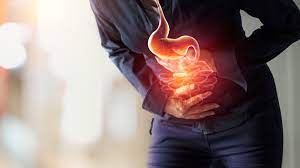What Causes Water Retention And How To Avoid It
Edema is swelling, usually of the feet, legs, ankles or hands, caused by excess fluid accumulated in your body’s tissues.
In most cases, the main factors of edema are menopause, contraceptive pills, burns, pregnancy, physical inactivity, poor diet and other pill containing estrogen (medications like NSAIDs and vasodilators). The symptoms of edema mostly depend on the root cause and they usually develop gradually over time. Urine tests, heart function tests, liver function tests, blood tests and X-ray can determine the underlying cause.
Even though most cases are not serious, however edema can occur as a result of kidney disease, liver disease, diabetes, or heart failure, which means that you should not take it for granted. Edema is a common condition, affecting nearly 4.4 million Americans.
So, today, you will find out more about the most common causes of edema and the methods how to prevent it (of course if a serious disease is not the root cause of it):
Excessive Sodium Intake
Water retention usually appears when the body begins utilizing its water reserves, which in most cases happens when a person’s diet is mainly based on foods rich in sodium and low water intake. So, it is very important to do a little research in order to find out more which foods have large quantities of sodium, so you will be able to eliminate them from your diet.
Also, you should know that sodium can be found in foods you would not expect it to be present: processed meat, canned veggies, condiments, and processed food in general. Celtic salt and Himalayan salt are extremely beneficial for reversing water retention.
Magnesium Deficiency
Low magnesium levels in the body can obstruct the proper function of many systems in the body, thus causing water retention. A study showed that taking 200 milligrams of magnesium a day can reduce edema in women with PMS symptoms. In order to reverse this condition, make sure to take magnesium supplements or eat more magnesium-rich foods like dark chocolate, avocados, whole grains, spinach, and nuts.
Vitamin B6 Deficiency
open next page to continue reading….




